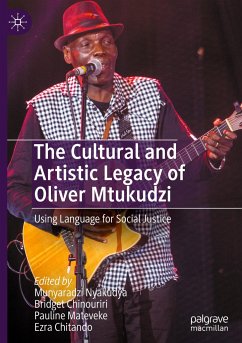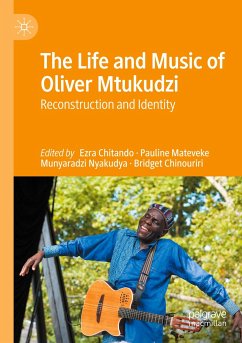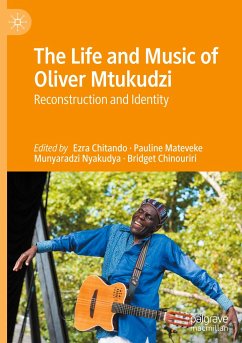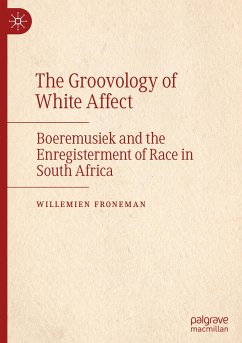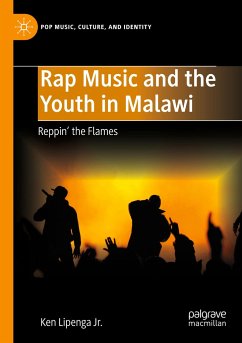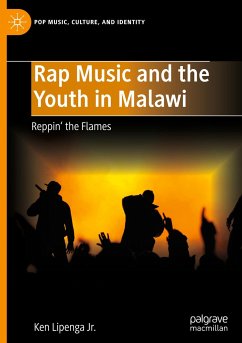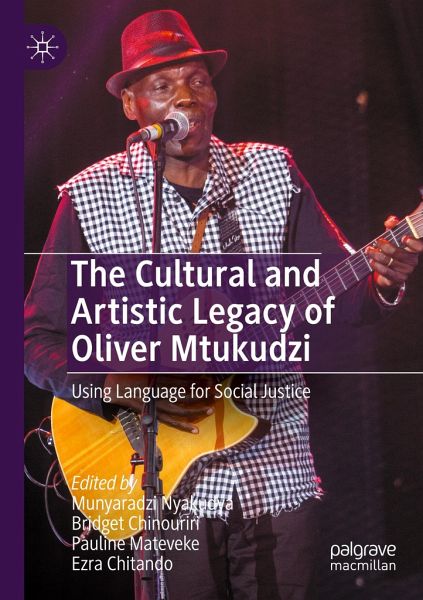
The Cultural and Artistic Legacy of Oliver Mtukudzi
Using Language for Social Justice
Herausgegeben: Nyakudya, Munyaradzi; Chinouriri, Bridget; Mateveke, Pauline; Chitando, Ezra
Versandkostenfrei!
Versandfertig in 6-10 Tagen
76,99 €
inkl. MwSt.

PAYBACK Punkte
38 °P sammeln!
This book delves into a critical and comprehensive analysis of Mtukudzi's legacy, as an outstanding musician who anchored his music on cultural identity specifically through the artistic manipulation of language. As a cultural worker, his remit extended beyond performance. This raised his stature to the levels of such African music icons as Fela Kuti of Nigeria, Salif Keita of Mali and Miriam Makeba/Hugh Masekela of South Africa, all towering giants in African musical performance. This volume examines how Mtukudzi artistically manipulated language to convey a timeless message of cultural ident...
This book delves into a critical and comprehensive analysis of Mtukudzi's legacy, as an outstanding musician who anchored his music on cultural identity specifically through the artistic manipulation of language. As a cultural worker, his remit extended beyond performance. This raised his stature to the levels of such African music icons as Fela Kuti of Nigeria, Salif Keita of Mali and Miriam Makeba/Hugh Masekela of South Africa, all towering giants in African musical performance. This volume examines how Mtukudzi artistically manipulated language to convey a timeless message of cultural identity, fighting for the respect of rights for women, children and all. It unpacks how Mtukudzi subtly uses language to put across political views that speak truth to power, harnessing Zimbabwean language to articulate and promote the nation's cultural heritage and to advocate for societal development and the promotion of rights of vulnerable groups.
The chapters in this volume are amix ofinterdisciplinary Zimbabwean scholars of linguistics, performance studies, religion, history, communication and media studies, unravelling Mtukudzi as a fighter for human rights and justice who subtly critiqued political systems and practices. It concludes that Mtukudzi strove to be a cultural worker who used the power of language through music to contribute towards the rehabilitation of a battered African identity.
The chapters in this volume are amix ofinterdisciplinary Zimbabwean scholars of linguistics, performance studies, religion, history, communication and media studies, unravelling Mtukudzi as a fighter for human rights and justice who subtly critiqued political systems and practices. It concludes that Mtukudzi strove to be a cultural worker who used the power of language through music to contribute towards the rehabilitation of a battered African identity.



